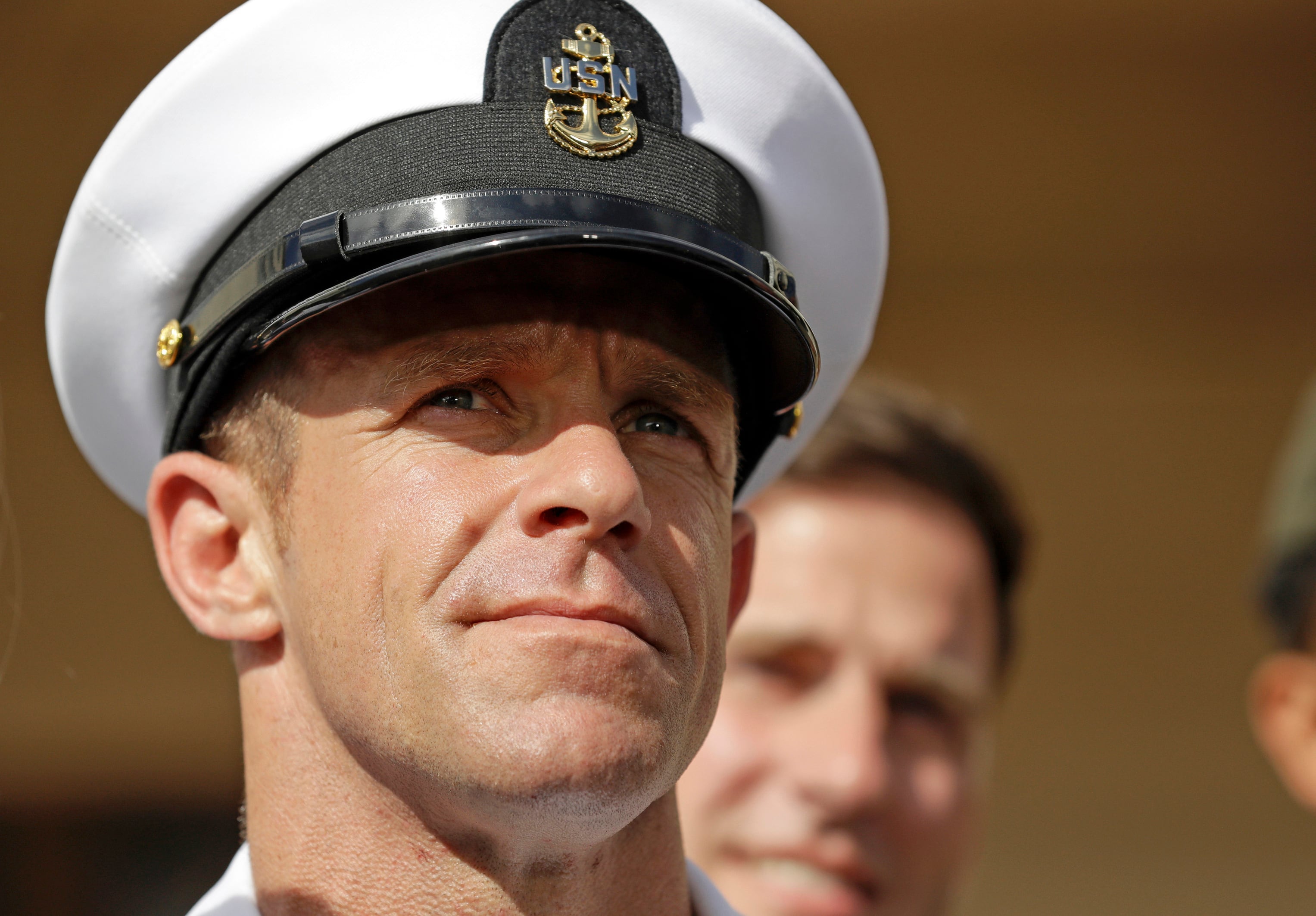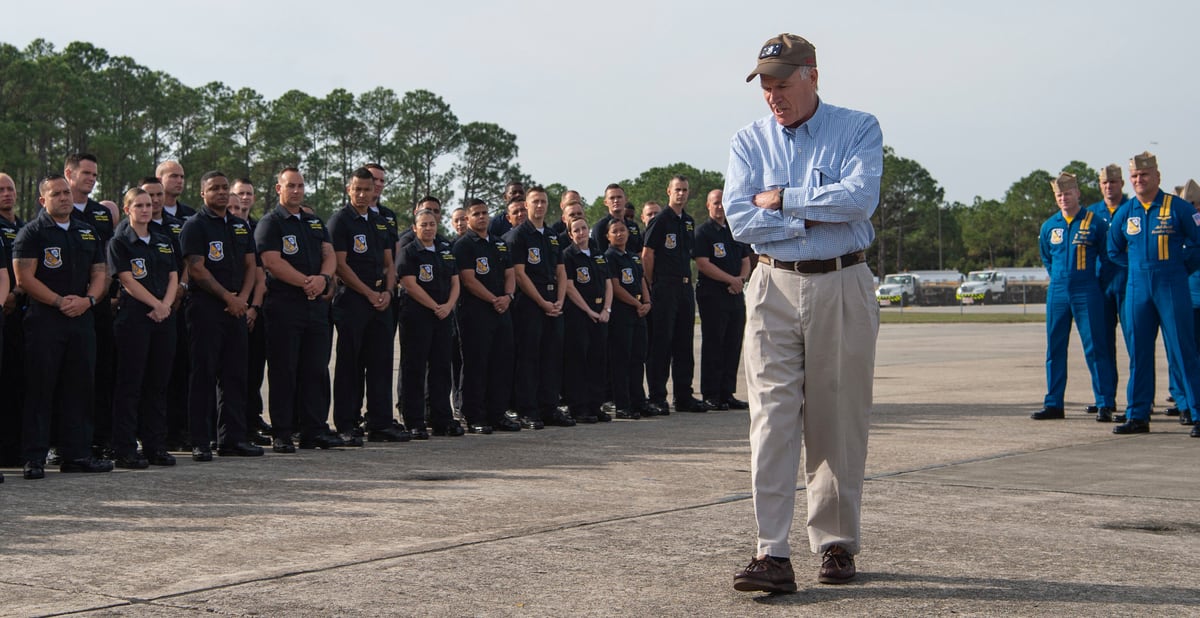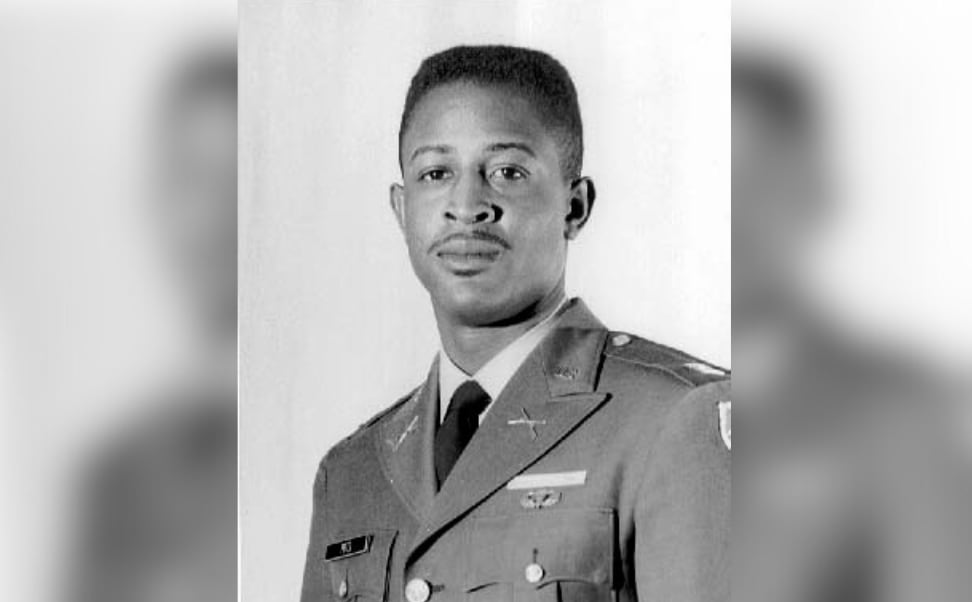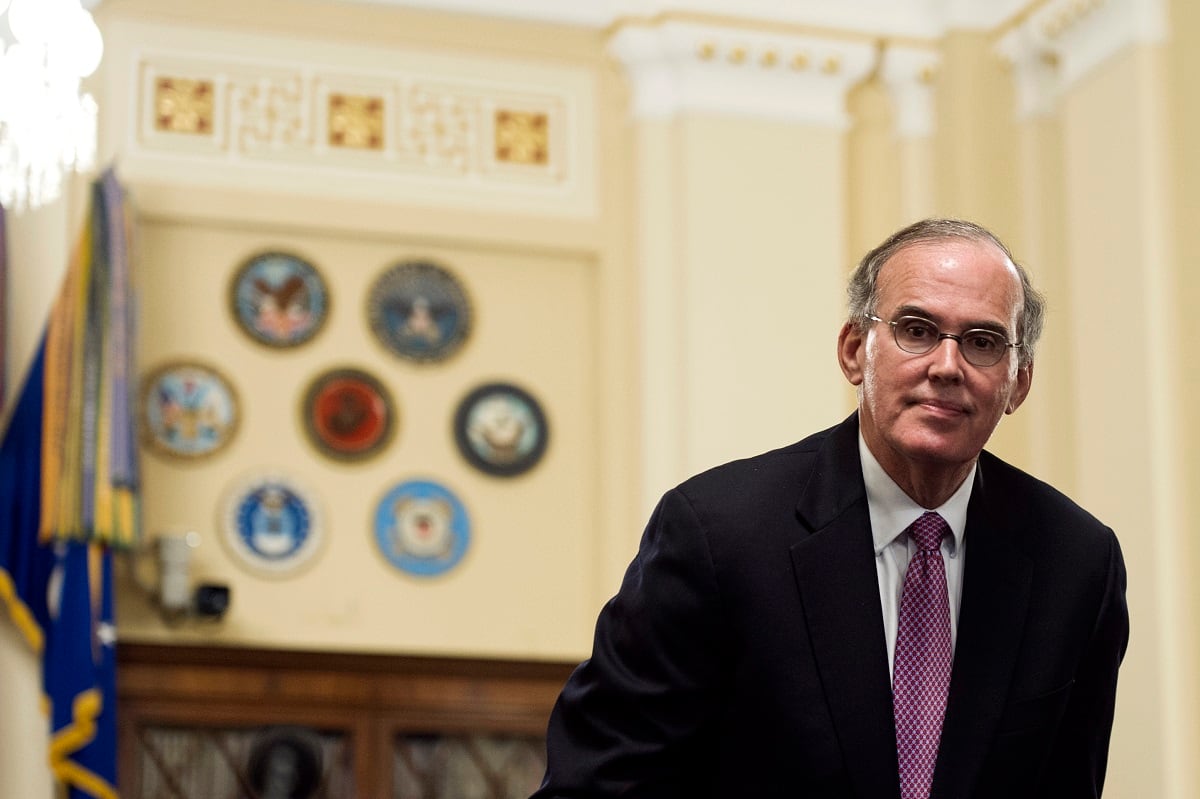SAN DIEGO — The war crimes case against a Navy SEAL not only cost the Navy secretary his job. It dragged an elite military force known for quiet professionalism into a political firestorm and drove a wedge through the special operations community.
Regardless of their position on the allegations against Chief Petty Officer Edward Gallagher, most SEALs agree that the force has suffered from the attention surrounding the case that led President Trump to restore Gallagher’s rank.
“It’s incredibly divisive and polarizing within our own community,” one SEAL said. “In some ways, it’s pitting frogman against frogman, and it’s really hard to know what to do. We’re not well-equipped to deal with so much public exposure and political interference.”
The SEAL, who still serves in the military, spoke on condition of anonymity, citing fear that his comments could harm his career.
The case has spurred conversations among the ranks about how to move past the uproar while also addressing the problems that led to it. SEALs still in uniform and those who are retired told The Associated Press that the debate is raging in private online forums.
Some believe the president should not have used his authority as commander in chief to erase the sentence handed down by military jurors who convicted Gallagher of posing with a dead Islamic State captive. Jurors recommended that he be demoted.
Gallagher was acquitted of murder charges in the fatal stabbing of the captive and attempted murder charges for allegedly shooting at civilians during his deployment to Iraq in 2017.
Other SEALs believe Trump had no choice but to intervene because of the Navy’s botched handling of the case, which included the prosecution tracking the emails of Gallagher’s lawyers during the court-martial, which the judge noted violated his due process rights.
They thought Navy commanders went too far by calling a review board last week to determine whether Gallagher should remain a SEAL, just as the Bronze Star recipient was preparing to retire after two decades of service.

Bill Brown, an enlisted SEAL who left the service in 2005, reached out Friday to the Navy’s top SEAL, Rear Adm. Collin Green, to let him know many SEALs shared that point of view.
“I told him, ‘With all due respect, admiral, sometimes you’ve got to let a guy ride out into the sunset,’” he said.
Brown said Trump was looking out for warfighters. Many SEALs have not felt that trust with Navy leadership, which has called for a crackdown on everything from uniform standards to grooming.
Meanwhile, the Navy has been sending its top warriors on multiple deployments. Gallagher deployed eight times.
Some fear being judged when they return home, Brown said.
“When you’re in a combat zone, you don’t think about anything except worrying about your mission,” he said. “We want to make sure our officers have our back.”
Others believe some will now be wary of reporting wrongdoing.
RELATED

Trump also pardoned two other service members — a former Army Special Forces soldier set to stand trial next year in the killing of a suspected Afghan bombmaker in 2010 and an Army officer who had been convicted of murder for ordering his soldiers to fire on three unarmed Afghan men in 2012, killing two.
On Sunday, Defense Secretary Mark Esper fired Navy Secretary Richard Spencer after learning he had privately proposed to the White House that Gallagher be allowed to retire at his current rank and without losing his status as a SEAL. Esper said Spencer had not told him of the proposal to the White House, causing him to lose “trust and confidence.”
But even before receiving Trump’s order to allow Gallagher to retire with his full rank, Esper said he had decided the review process should be stopped in part because of the damage it would do to the institution.
“As professional as they are,” he said of the Navy review board members, who were all SEALs, “no matter what they would decide, they would be criticized from many sides, which would further drag this issue on, dividing the institution. I want the SEALs and the Navy to move beyond this now, fully focused on their warfighting mission.”
RELATED

Jeff Eggers, a retired combat veteran SEAL who served 20 years before retiring in 2013, said a certain degree of public scrutiny can be good, but the force works best in the shadows and holding its own accountable.
Still, he said, the case has raised important debates among SEALs about how much the force needs to focus on good order and discipline while also encouraging risk taking.
In the end, the answers must come from the SEALs and their leaders with civilian oversight, said Eggers, who served on the National Security Council during the Obama administration. The process the military has built to deal with war crimes should be trusted, he said.
“Let accountability rest at the appropriate level, and that’s how we get this right,” he said. “That’s why we have commanders and senior enlisted advisers. We have to trust them with that.”









